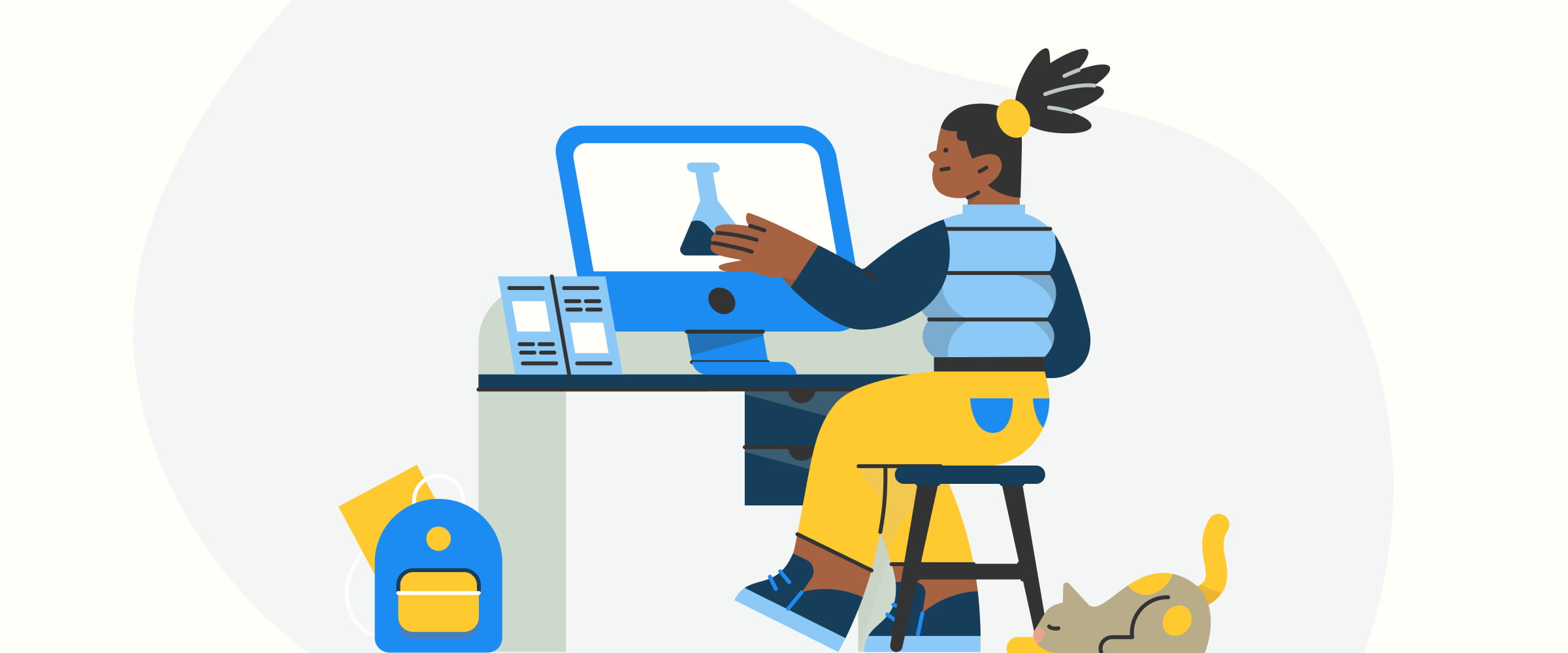In a rapidly transforming professional landscape, there’s no room for stagnation. That’s why Learning & Development (L&D) programs have always been a crucial part of organisational growth. According to a 2019 study from LinkedIn, 94% of the employees surveyed stated they would stay with the organisation if it invested in their development.
However, the unfortunate reality is that this desire for growth isn’t translating into success. Traditional L&D approaches are failing us at an alarming rate, and most programs have become mere checklist items that don’t yield tangible results.
In a separate study, 75% of managers across 50 companies were dissatisfied with their organisation’s learning and development function. McKinsey also found that only 25% of respondents felt that training improved their performance.
So, what’s going wrong?

Why your L&D programme may be outdated
There are several theories as to why L&D programmes are so ineffective. One of them is that L&D is widely regarded as a token exercise to gain promotions, raises, and other benefits. Don’t get us wrong, it’s okay to incentivise participation with credentials and rewards. But without appealing to the intrinsic motivations of employees, they may not be fully engaged with the programmes you’ve invested in.
To make matters worse, there is a disconnect between the content of these programmes and the evolving needs of the modern workforce. The rise of AI, for instance, has rendered courses on subjects like “business writing” almost irrelevant. The machine age has ushered in a need for adaptability, but our L&D structures remain static. No wonder only 12% of employees applied learnings from L&D programmes in their work.
But let’s not blame an organisation’s choice of programmes. That application is so abysmally low could be a product of the “forgetting curve”. According to research, if people don’t apply what they had just learned within 20 minutes, they retain only 58% of the knowledge. This goes down to 34% after a day and 21% after a month. It’s time we review the traditional structure of L&D programmes, because let’s face it: That one-off workshop on management styles may be a waste of both man hours and budget.
What’s next for your L&D budget?
The pandemic may have overhauled the way we work, but our L&D programmes have not caught up. With the clouds of recession looming, there is greater pressure to drive measurable returns on investment. In other words, the L&D budget must be an investment, not an expense. Our approaches must change across two fronts: content and delivery.
Content
As employees are also facing a burnout epidemic, it’s time to channel the L&D budget towards fostering a resilient organisational culture. What the workforce needs is a conscious shift from hard skills – like mastering new technologies – to soft ones like emotional intelligence. With
workforces operating in hybrid and remote setups, organisations need leaders who can keep employees engaged, promote psychological safety, and leverage positive conflict among team members.
According to the World Economic Forum’s Future of Jobs report, two of the most in-demand skills are resilience, flexibility, and agility, which ranked third, and curiosity and lifelong learning, which ranked fifth. Deloitte estimates that positions based on soft skills will grow 2.5 times faster than other positions and will comprise 63% of all roles by 2030.
Delivery
Next, it’s time to reconsider the delivery methods of L&D programmes. Traditional formats like seminars or extensive training sessions can consume significant amounts of time, discouraging participation. To address this, businesses will need to divorce themselves from the notion that an effective L&D programme necessitates lengthy sessions and embrace the integration of learning into the work day through bite-sized modules.
This approach of breaking down L&D programmes into shorter, more manageable chunks offers advantages for individual learners. It enables greater personalisation, allowing sessions to be tailored to specific teams or individuals’ roles. The result is increased relevance and higher chances of applying the acquired knowledge or skills in daily tasks, ultimately leading to better long-term retention.

A culture-centric approach to L&D programmes
How can we train employees to learn skill A and apply it to context B? This is the thought process behind most L&D programmes, but L&D can be as much about culture as it is about operations. Here lies the golden opportunity to align L&D programmes with the organic development of organisational culture.
Below are three examples:
1. Mental Health First Aid for employees
A survey Channel News Asia (CNA) conducted in 2022 found that 66% of Singaporeans were concerned about mental health stigma. As much as organisations can train managers in responding to struggling team members effectively, the latter has to be okay with reaching out. Many don’t, unfortunately, for the same reason they shy away from utilising the mental health provisions in their Employee Assistance Program (EAP).
As some organisations in Asia are more hierarchical than others, employees may feel safer turning to their peers, who are seldom trained to rise to the occasion. Enter Mental Health First Aid (MHFA), which Intellect is the sole licensed provider of in Singapore. This course trains peers to identify team members who may be struggling with their mental health, assist them in finding the right resources, and ultimately restore their well-being.
Compared to similar programmes which focus on theory, such as Psychological First Aid, MHFA places more importance on practice, including interactive sessions and simulated real-life scenarios in its curriculum. Because we all know that knowing the symptoms of a panic attack is different from helping a co-worker de-escalate one in the middle of a team meeting.

Get your employees certified in MHFA here.
2. Coaching for managers
According to a study by ICF Global Coaching in 202, the use of online coaching in business in Asia increased by 74% between 2016 and 2020. Coaching can be a good use of your L&D budget, especially when you take a top-down approach, equipping executives with complex competencies such as improving systemic Diversity, Equity, and Inclusion (DEI) and conducting layoffs during a recession.
Let’s not forget our managers, who have just as much to gain from the personalisation coaching affords because leadership styles are too varied for a one-size-fits-all L&D programme. A coaching session on Intellect takes no more than 30 minutes on their mobile phone, tablet, or computer, making regular upskilling and instant application possible. A lunchtime session, for instance, could do wonders for a manager who feels anxious about conducting performance appraisals in the late afternoon.
When these line managers adopt a coaching mindset in leading their teams, employees are likely to be more engaged and achieve higher performance. In other words, investing in coaching not only pays for itself, but it also yields “dividends” that trickle down the organisation and improve its culture.
3. Profiling workshops
According to Intellect’s Clinical Psychologist Linda Rinn, managers spend 25% to 40% of their time resolving workplace conflict. That’s two out of five working days – a great deal of time they could otherwise dedicate to achieving business outcomes.
Office politics are part and parcel of organisations, and profiling workshops are a good place to start strengthening working relationships and mending unhelpful dynamics within the teams. Examples of profiling workshops include DISC assessments, the Big Five Personality Traits, and the Enneagram of Personality.
The message across profiling workshops is clear: Recognising our differences isn’t enough; we have to tailor our approaches to individuals accordingly. You may prefer to address conflict head-on; others may need time and space to cool off. A team member may appreciate public commendation for a job well done, another may shy away from the attention. (Read more about “love languages” in the workplace.)

Stretch your L&D dollar with Intellect
By shifting the content and delivery of L&D programs away from generic topics and time-intensive formats, organisations can nudge employees towards personal and professional development.
From programmes like Mental Health First Aid to coaching sessions for employees across the organisation, Intellect’s solutions are designed for the modern workforce navigating a post-pandemic world.
Reach out to us for a demo here.








